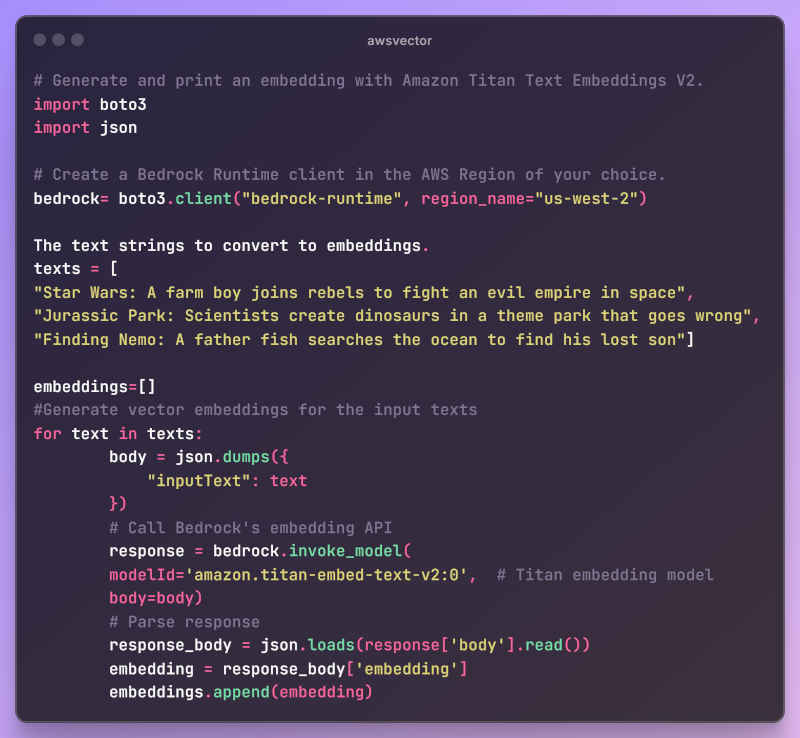| Amazon S3 Vectors Or PostgreSQL- Is This The End Of Specialized Vector Stores? |
| Written by Nikos Vaggalis | |||
| Thursday, 28 August 2025 | |||
|
AWS has turned S3 buckets into Vector stores. This makes it the first cloud object store with native support to store and query vectors. What are the advantages? Mainly to reduce the cost of uploading, storing, and querying vectors by up to 90%. You only pay for what you use without the need for infrastructure provisioning and management. That aside, you can scale vector search applications seamlessly from gigabytes to petabytes, while you can alos scale them down to zero when these resources are not in use. While cost cutting and scaling might be the main selling points, there are others too:
On the last point, integration wise, you can use Amazon Bedrock and the AWS Python SDKs to generate embeddings. An example taken from the official documentation, you do :
That mean that you can use a S3 Vector backend to power up various AI applications like:
In addition, its integration with Opensearch allows for critical real-time applications such as product recommendations and fraud detection.
In the end, does that mean that there's no more need for specialized databases or vector stores? It depends. As we explored in "Turn PostgreSQL Into A Vector Store", the pg_vector extension could render PostgreSQL a viable alternative to specialized vector stores used in LLMs. An excerpt from it : pg_vector allows you to replace Chroma or any other specialized vector engine with Postgres, so that you can have your embeddings stored alongside your JSON or relation data under the same roof. The gist here is that using a relational database with vector support allows that exactly: embeddings stored alongside your JSON or relation data under the same roof. which opens up other kinds of possibilities. So with S3 Vectors taking care of your data lakes and PostgreSQL looking after vector and relational data, have specialized Vector stores reached the end of the road? More InformationRelated ArticlesTurn PostgreSQL Into A Vector Store
To be informed about new articles on I Programmer, sign up for our weekly newsletter, subscribe to the RSS feed and follow us on Facebook or Linkedin.
Comments
or email your comment to: comments@i-programmer.info |
|||
| Last Updated ( Thursday, 28 August 2025 ) |




